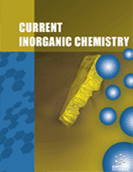Abstract
The thermodynamic properties of various relaxors of PMN, PMT, PZN, PST, PMN–PT, PZN–PT, and BTZ have been reviewed and the excess thermodynamic properties are discussed. In lead-containing complex perovskite, excess heat capacity owing to the formation of PNR and glass-like low-temperature excitations are clearly observed. Studies of solid solutions indicate the difficulty of forming PNR with rhombohedral symmetry in the ferroelectric phase and the possible growth of a polar region with tetragonal symmetry in the compounds. Thus, the lead-free Ba-based relaxor BTZ35 can be considered as the frozen state of a displacive-type phase transition without disorder.
Keywords: BTZ, heat capacity, PMN, PMN–PT, PMT, polar nanoregion, PST, PZN, PZN–PT, relaxor.
Graphical Abstract
 7
7

